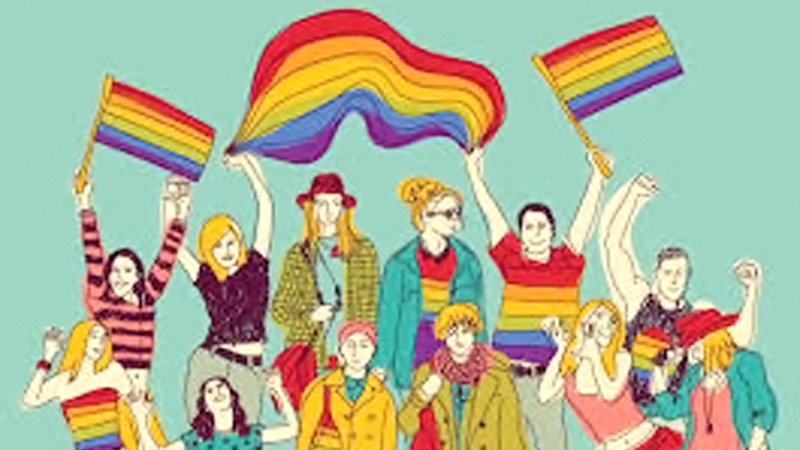The struggle for LGBTQ+ rights is a global issue, marked by progress and setbacks.
While many countries have made significant strides towards equality, others lag behind, constrained by archaic laws and deep-seated cultural prejudices. In Sri Lanka, the LGBTQ+ community faces a unique set of challenges that span legal, financial, and cultural realms. This article delves into these multifaceted issues, shedding light on the crucial work of the Young Activist Collective (YAC), a group dedicated to empowering young leaders and advocating for the rights of LGBTQ+ individuals.
Sri Lanka’s legal framework concerning LGBTQ+ rights is heavily influenced by its colonial past. The laws that criminalize same-sex relationships, specifically Sections 365 and 365A of the Penal Code, are remnants of British colonial rule. Despite the country gaining independence in 1948, these laws have persisted, contributing to a climate of fear and discrimination.
The evolution of LGBTQ+ rights in Sri Lanka has been slow, punctuated by sporadic advocacy efforts and occasional public debates. Key events, such as the 1995 legal challenge to decriminalize homosexuality and the subsequent pushback, highlight the contentious nature of this issue.
The legal obstacles faced by the LGBTQ+ community in Sri Lanka are formidable. Sections 365 and 365A of the Penal Code criminalize “carnal intercourse against the order of nature” and “acts of gross indecency,” respectively.
Harassment
These vague and antiquated provisions have been used to harass and persecute LGBTQ+ individuals, even though prosecutions are rare. The lack of explicit legal protections further exacerbates the situation, leaving LGBTQ+ individuals vulnerable to discrimination in various aspects of life.
YAC has been instrumental in challenging these legal barriers. Through strategic litigation, public awareness campaigns, and collaboration with international human rights organizations, YAC advocates for the decriminalization of homosexuality and the introduction of comprehensive anti-discrimination laws. A notable case is the ongoing petition to the Supreme Court seeking to nullify Sections 365 and 365A, which, if successful, could pave the way for broader legal reforms.
Discrimination in the workplace and limited access to professional opportunities result in significant financial hardships for LGBTQ+ individuals in Sri Lanka. Many face job insecurity, lower wages, and even outright unemployment due to their sexual orientation or gender identity.
This economic marginalization is compounded by the lack of legal protections, making it difficult for LGBTQ+ individuals to seek redress for discriminatory practices.
YAC addresses these financial obstacles through various initiatives aimed at economic empowerment. They offer vocational training programs that equip LGBTQ+ individuals with marketable skills, thereby enhancing their employability.
Workplace policies
YAC collaborates with businesses to promote inclusive workplace policies and practices. By creating networks of support and advocating for economic equality, YAC helps LGBTQ+ individuals achieve financial stability and independence.
Cultural attitudes towards LGBTQ+ individuals in Sri Lanka are deeply rooted in traditional and religious beliefs, leading to widespread social stigma and exclusion. Many LGBTQ+ individuals face pressure to conform to heteronormative expectations, resulting in mental health issues, family rejection, and social isolation. The cultural narrative that frames LGBTQ+ identities as “Western” and “unnatural” further entrenches these prejudices.
YAC tackles these cultural barriers through education and awareness initiatives aimed at fostering acceptance and understanding. They organize community events, workshops, and media campaigns that highlight LGBTQ+ stories and contributions, challenging stereotypes and misconceptions. By creating platforms for dialogue and inclusion, YAC works to shift cultural perceptions and build a more accepting society.
One of YAC’s core beliefs is the power of youth in driving social change. By focusing on training young leaders, YAC aims to create a generation of advocates who are well-equipped to fight for LGBTQ+ rights.
The training programs cover a wide range of areas, including human rights education, legal advocacy, medical knowledge, and media engagement. These programs not only provide practical skills but also instill a sense of purpose and solidarity among the participants.
Success stories
Success stories of young leaders trained by YAC illustrate the impact of these programs. For instance, a young activist who underwent YAC’s legal training program successfully challenged a case of workplace discrimination, setting a precedent for future legal battles. Another trainee, empowered by YAC’s media training, launched a social media campaign that garnered national attention and support for LGBTQ+ rights.
The challenges faced by the LGBTQ+ community in Sri Lanka are immense, but the efforts of the Young Activist Collective offer hope for a brighter future. By empowering young leaders through comprehensive training and advocacy, YAC is laying the groundwork for a more inclusive and equitable society. The resilience and dedication of these young activists, supported by YAC, are crucial in the fight against discrimination and in the push for recognition and respect for all individuals, regardless of their sexual orientation or gender identity.
In the face of cultural resistance and widespread stigma, the work of YAC and the empowered youth they train represent a powerful force for change. Together, they are challenging outdated beliefs, advocating for human rights, and paving the way for a future where every individual in Sri Lanka can live with dignity and pride.









